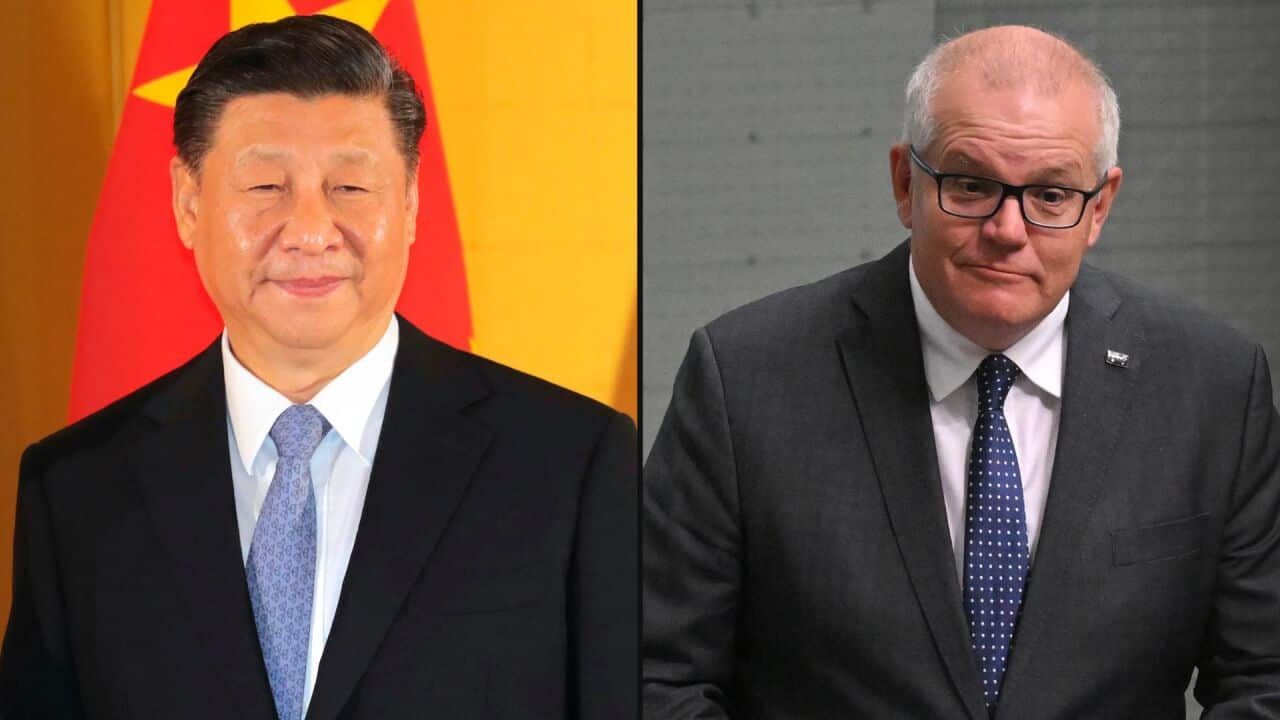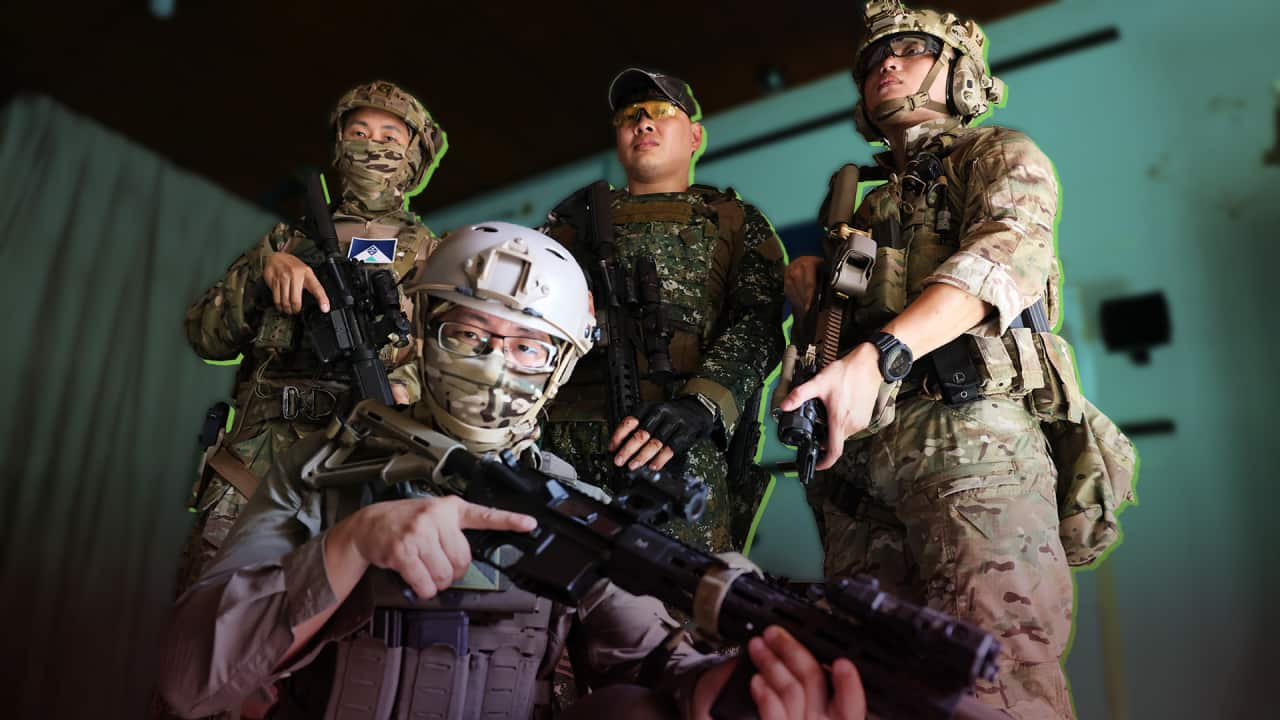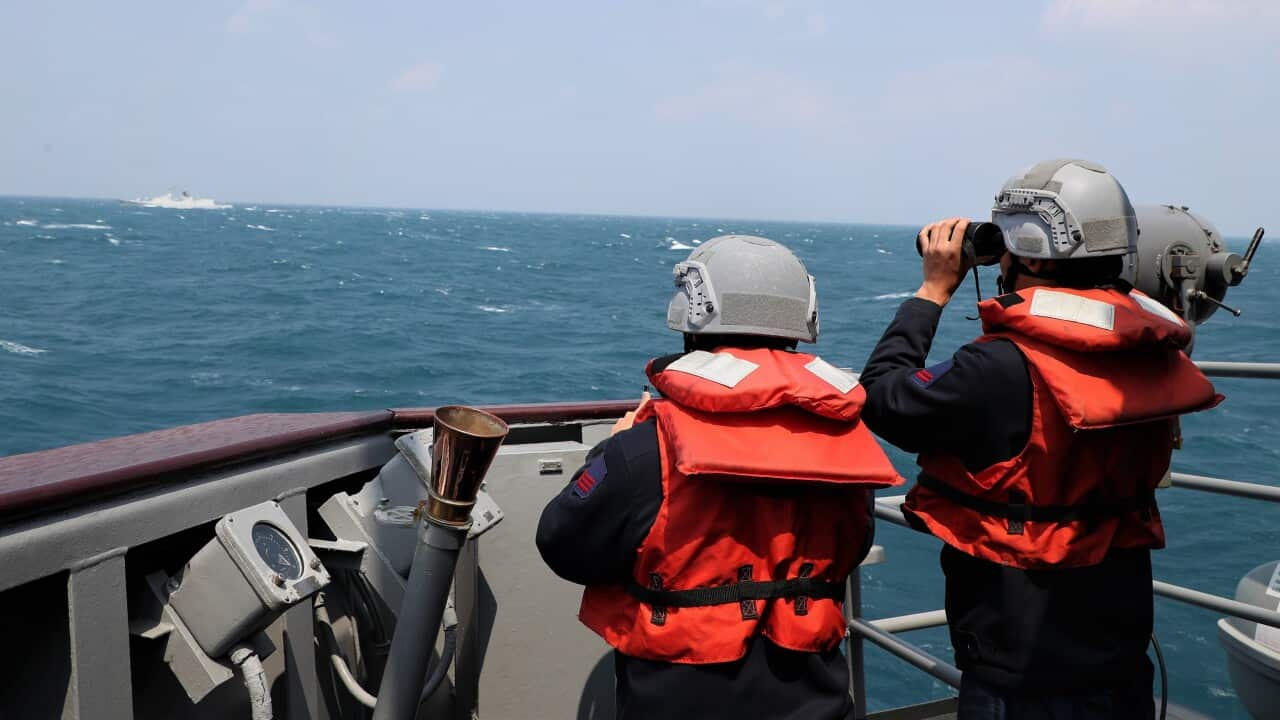Key Points
- Taiwan's citizens will vote for their president, vice-president, local legislators and "party lists" on 13 January.
- The election will be closely watched by China, Australia and the US as it will affect relations for years to come.
- Mainland Chinese politics and cross-strait relations are overshadowing all other issues in the election.
More than 19 million people in Taiwan will head to the polls on 13 January, in a vote that's being closely watched globally, as its outcome will affect relations between China, Australia and the United States amid high tensions in the region.
The people of Taiwan will vote for their president, vice-president, local legislators and desired "party list" — a list of eligible legislators who will be given seats based on their party's proportion of votes.
While the economy, high housing prices and energy security have played a role in campaigns, mainland Chinese politics and cross-strait relations are overshadowing all other issues and show the divisions between parties.
Here's what you need to know.
Who are the parties and the candidates?
Taiwan's legislature is composed of 113 seats and representatives are elected for four-year terms.
The three major parties involved in this election are the Democratic Progressive Party (DPP), the Kuomintang (KMT) and the newly-formed Taiwan People's Party (TPP).

On 13 January the people of Taiwan will vote for their president, vice-president, local legislator and desired "party list" – a list of eligible legislators who will be given seats based on their party's proportion of votes. Source: SBS News
The main opposition is the KMT, a more conservative, Beijing-friendly party that has roots going back to the end of the Chinese Civil War in 1949. The KMT candidate, Hou You-yi, is a former police officer and mayor of New Taipei City.
The TPP, led by the former mayor of Taipei and surgeon Ko Wen-je, is new on the scene. It has positioned itself as a middle ground between the DPP and the KMT and could be a disruptive force in this election.
The KMT favours maintaining closer economic and political ties with the Chinese Communist Party (CCP).
How close is Taiwan's election
In the last election in 2020, support for the DPP under Tsai was a staggering 57.1 per cent of the popular vote, but the latest polling averages show a much closer race this time around. Taiwan uses a "first past the post" electoral system like Canada, India and the UK.

The Taiwan legislature is composed of 113 seats - 73 seats based on geographic constituencies, 34 seats based on party lists, and six seats reserved for Indigenous representatives. All representatives serve a four-year term. Source: SBS News
Magee told SBS News it's likely none of the candidates will get 50 per cent of the popular vote this time around, as 10 per cent of the electorates still hadn't indicated who they were going to vote for in the latest polls.
While Taiwan doesn't allow new opinion polls to be published within ten days of an election, the most recent indication of voter sentiment shows Lai in a slight lead of 36 per cent, followed by Hou with 31 per cent and Ko at 24 per cent.
What might China's reaction to the election be?
If the DPP is re-elected under Lai, it's likely to lead to an "intensification of cross-strait tensions," according to Benjamin Herscovitch, research fellow at Australian National University.
"Under a DPP president, typically Beijing is more suspicious of Taipei and there's more conflict and tension," he told SBS News, adding that a third term under Lai would be historically unprecedented.
"It will signal that Taiwan is moving further from China in terms of Taiwanese identity and politics, and that’s something that frustrates Beijing deeply … [as] China's overarching objective is to annex Taiwan," Herscovitch said.
His thoughts were echoed by Pradeep Taneja, senior lecturer in Chinese and Asian politics at the University of Melbourne.
"[Chinese President] Xi Jinping, as he gets older, is getting impatient with the lack of reunification of Taiwan with China," he told SBS News, adding that the spectre of Hong Kong hangs over the upcoming election after Beijing floated the idea of a "one-party, two systems" approach for Taiwan.
"The way China has crushed dissent in Hong Kong by bringing this National Security Law has sent the signal to the people of Taiwan that China does not keep its word," Taneja said.
If the TPP or KMT come to power, there's likely to be a "reduction in the level of tension", Herscovitch says.
Despite the TPP and KMT being more Beijing-friendly, Herscovitch and Magee both stated that none of the three major parties are looking to upset the current status quo – which is that Taiwan is a de facto independent nation, despite the lack of any formal declaration to that effect.
"Even if Beijing might like the TPP or the KMT candidates more than they like the DPP candidates, they're still going to be unhappy with Taiwan's independence, and will implement a range of policies like military brinkmanship in the Taiwan Strait or economic coercion" to achieve the goal of annexing Taiwan, Herscovitch said.
In a new year’s address, Xi said "reunification of the motherland is a historical inevitability" and pointed to 2049 as the deadline for the "rejuvenation of the Chinese nation".
How will Taiwanese politics affect Australia?
Aside from the economic implications, with China being Australia's number one trade partner and Taiwan its seventh, the stability of the region is paramount for global governments, including Australia, experts agree.
"It's one of those flashpoints in the world [where] you could potentially see armed conflicts … [that] would directly affect Australia’s economic interests," Magee said.
Herscovitch said that, while the results of the Taiwan election weren't likely to prompt any policy changes from Anthony Albanese's government, a significant change in Taiwan's political stance could set off a chain of events that would implicate Australia.
"If there is another election of a DPP president, and if after his election he adopts language which is more forward-leaning on Taiwan's independence or symbolic issues important to Beijing … it's very possible that China will react really harshly," he said.
This he said, was likely to trigger criticism from allies like the US and Japan, with Australia following suit.
"There are possibilities for increased tension in the Australia-China relationship by virtue of how Beijing might react to the election in Taiwan … it's very high stakes for Australia."
Taneja said that Australia’s interests are best served if the current status quo is continued but the country should be watching the elections closely because Taiwan is a "robust democracy".
"It also demonstrates that there is nothing cultural about maintaining an authoritarian regime in a predominantly Chinese cultural landscape," he said. "It's important that Taiwan is able to conduct free and fair elections … the more democracies we have in the region, the better it is for regional peace and security."
What's the history between Taiwan and China?
The dispute over independence between the mainland and Taiwan goes back to the Chinese Civil War. In 1949, China's then-leader Chiang Kai-shek and the remnants of his government known as the Kuomintang were forced to retreat to the island by the communist armies of Mao Zedong.
Chiang and the Kuomintang declared Taiwan the Republic of China (ROC) while the mainland under Mao became the People's Republic of China (PRC).
Prior to the 1970s, the ROC was recognised by many countries as the sole legitimate Chinese government and its representative held China's seat on the United Nations Security Council. That changed in 1971 when the UN awarded Beijing diplomatic recognition as the "only legitimate representative of China to the United Nations".
Now, only 13 countries recognise Taiwan as a sovereign nation. Most – including Australia, Canada and the United States – operate under a "One China Policy" that acknowledges Beijing as the sole government of China, doesn't recognise Taiwan as a sovereign nation and doesn't maintain official government-to-government relations with Taipei.
Beijing claims Taiwan as a part of its territory and has been vocal about its plans for reunification under its "One China Principle".
Taiwan, which has its own constitution and has been governed separately since 1949, maintains it is independent despite never formally declaring separation from China.












